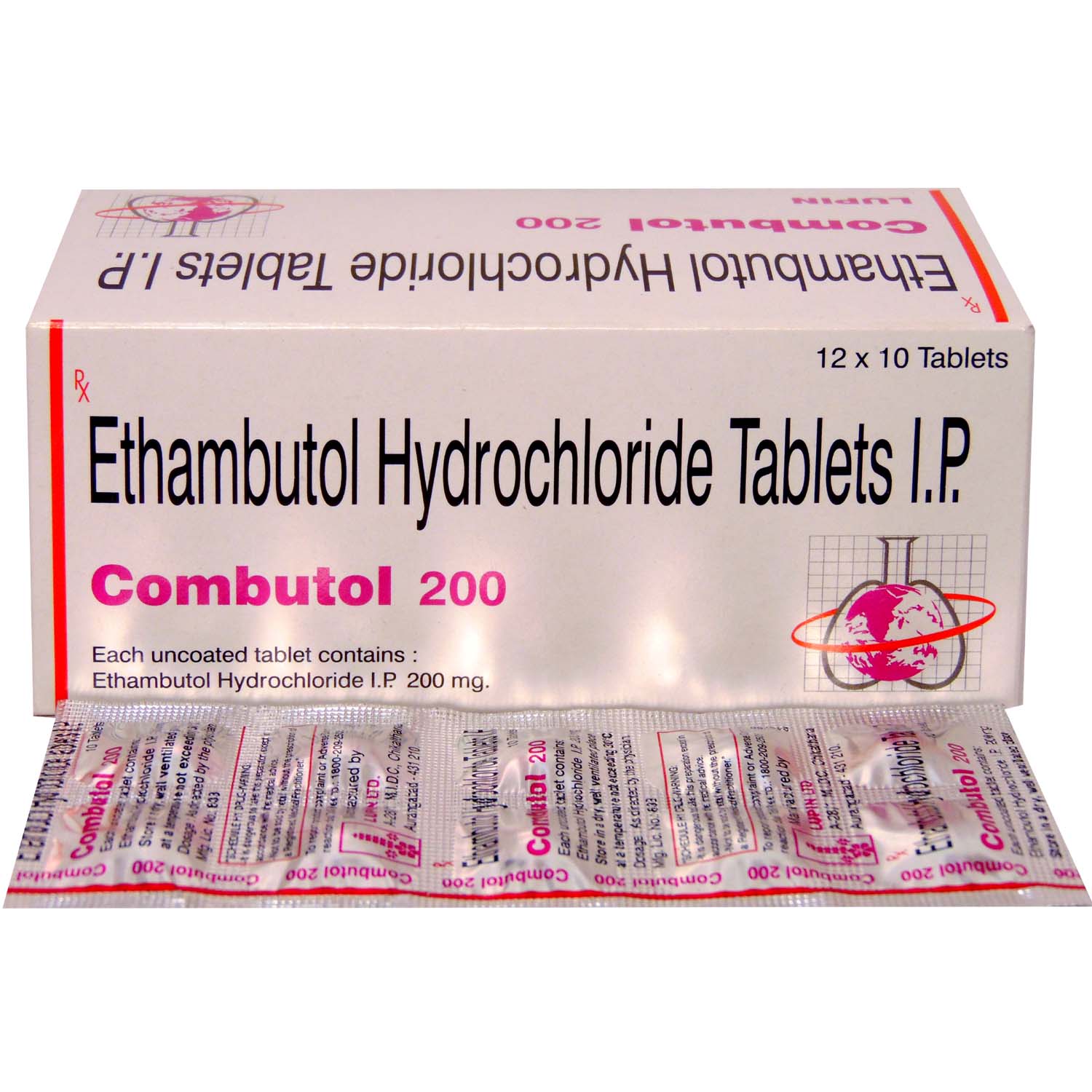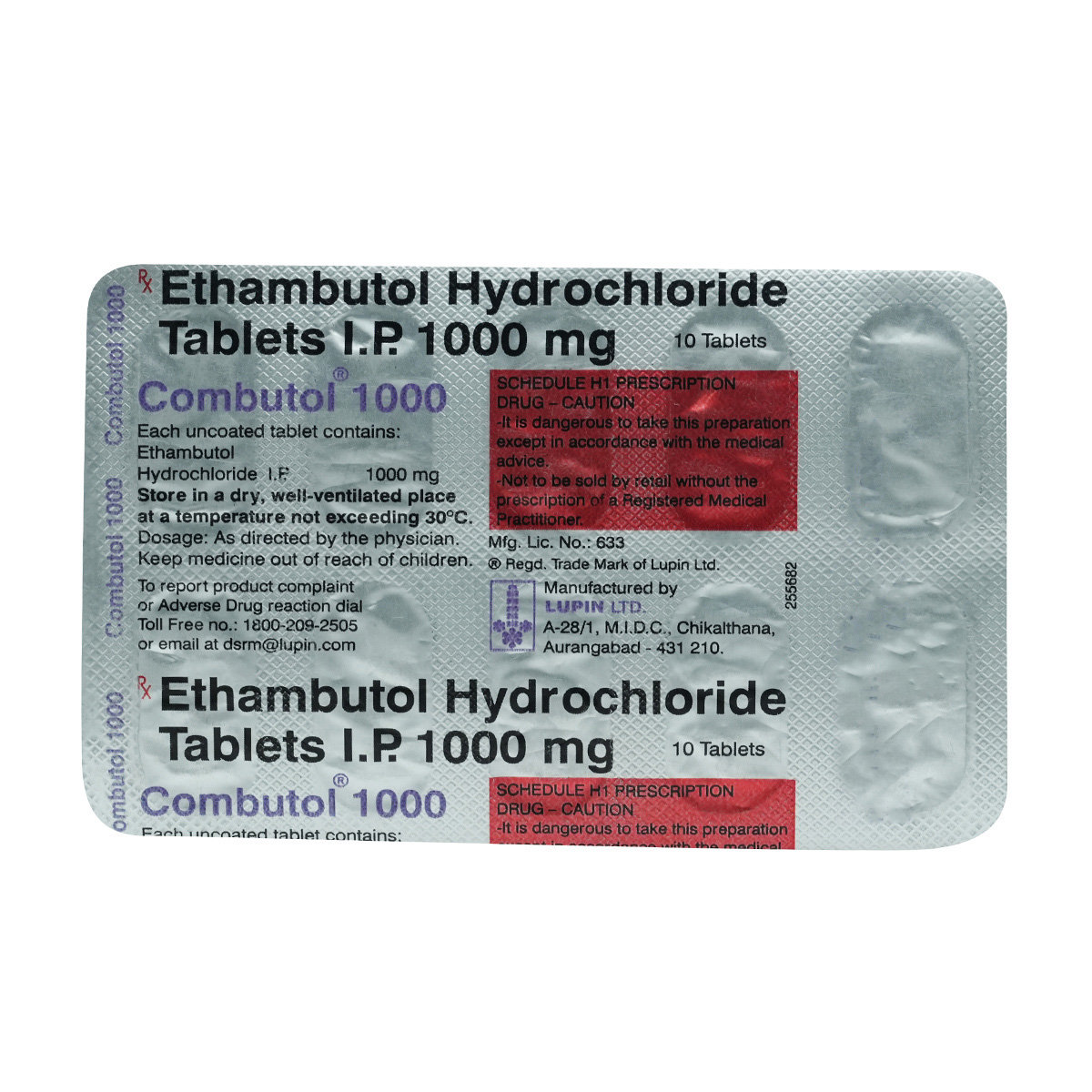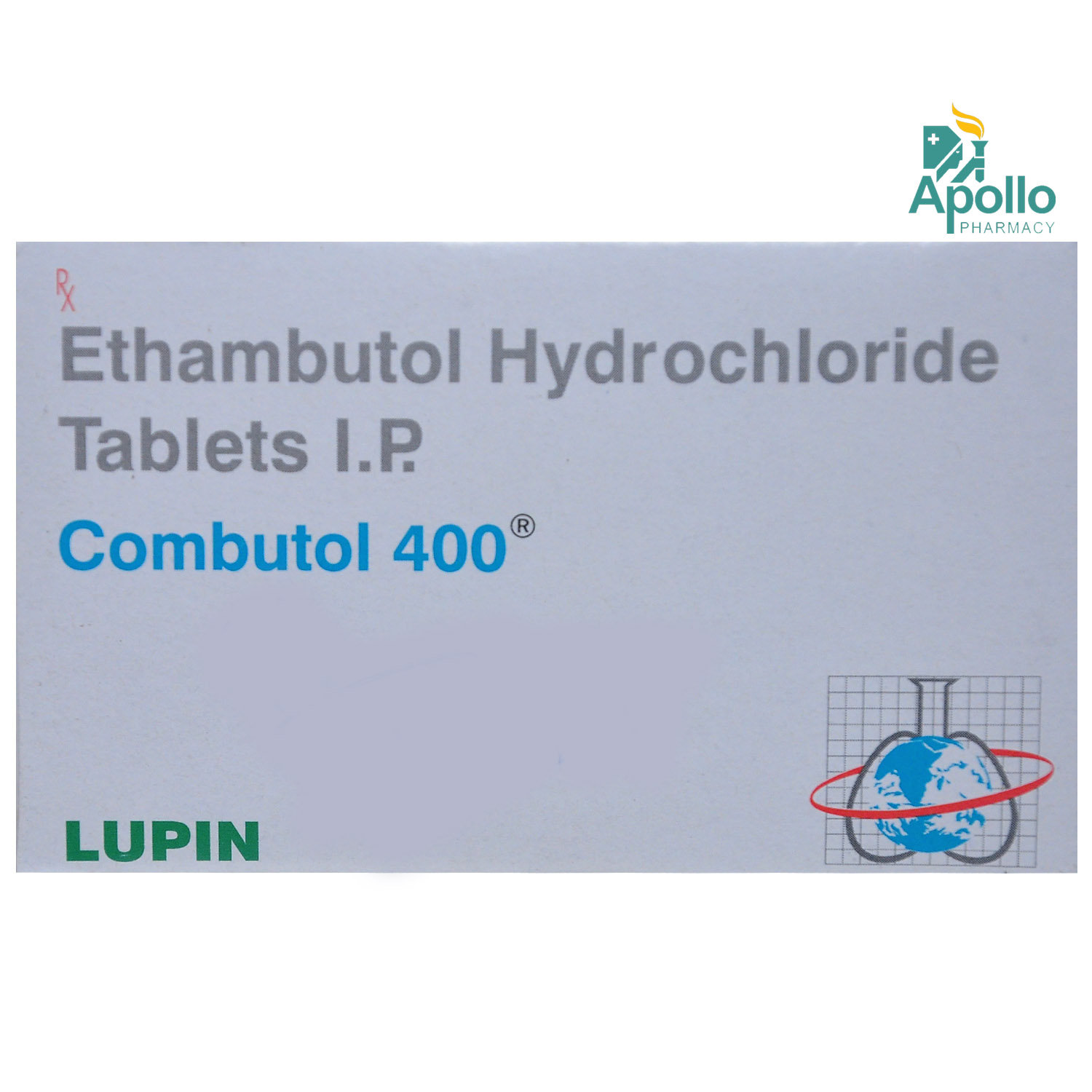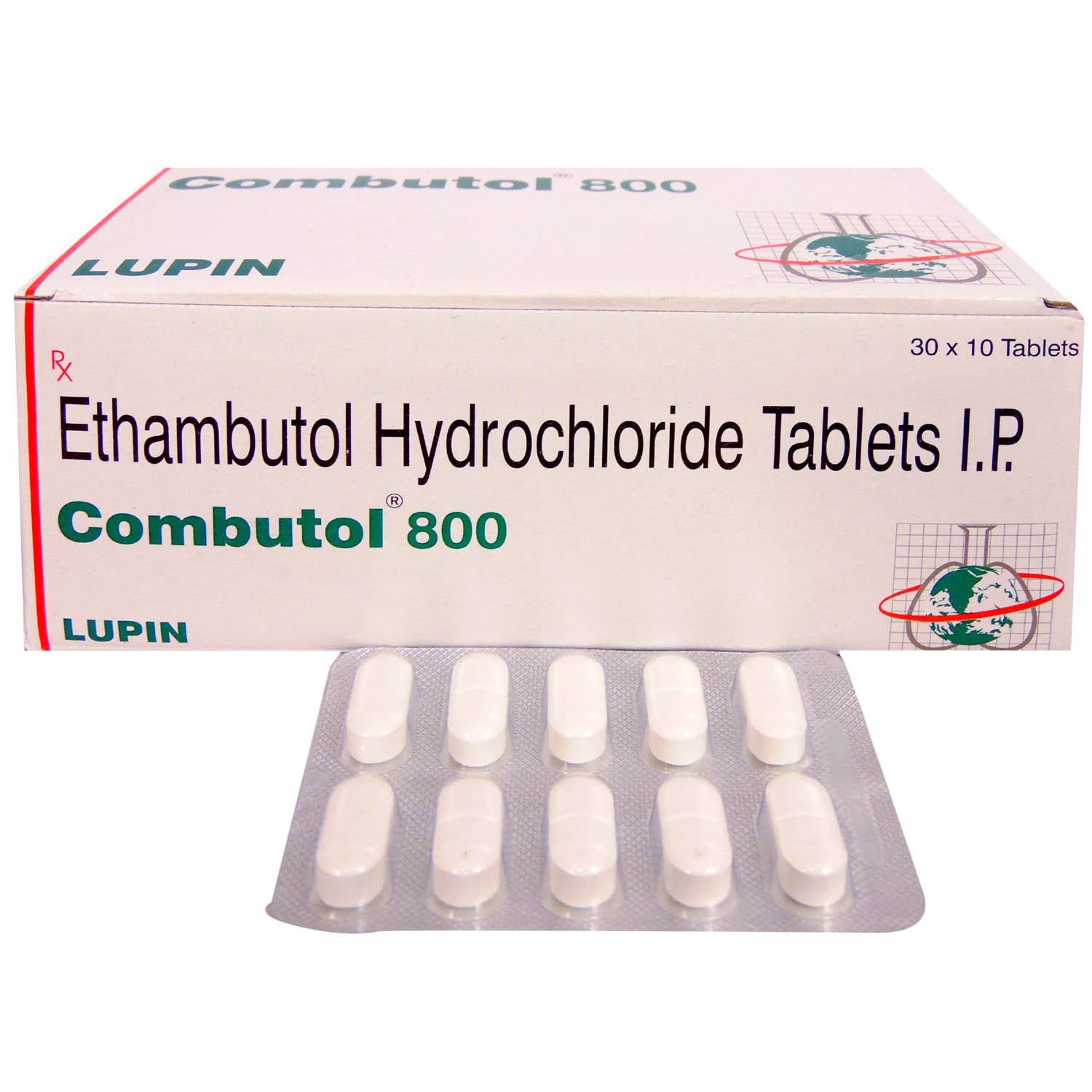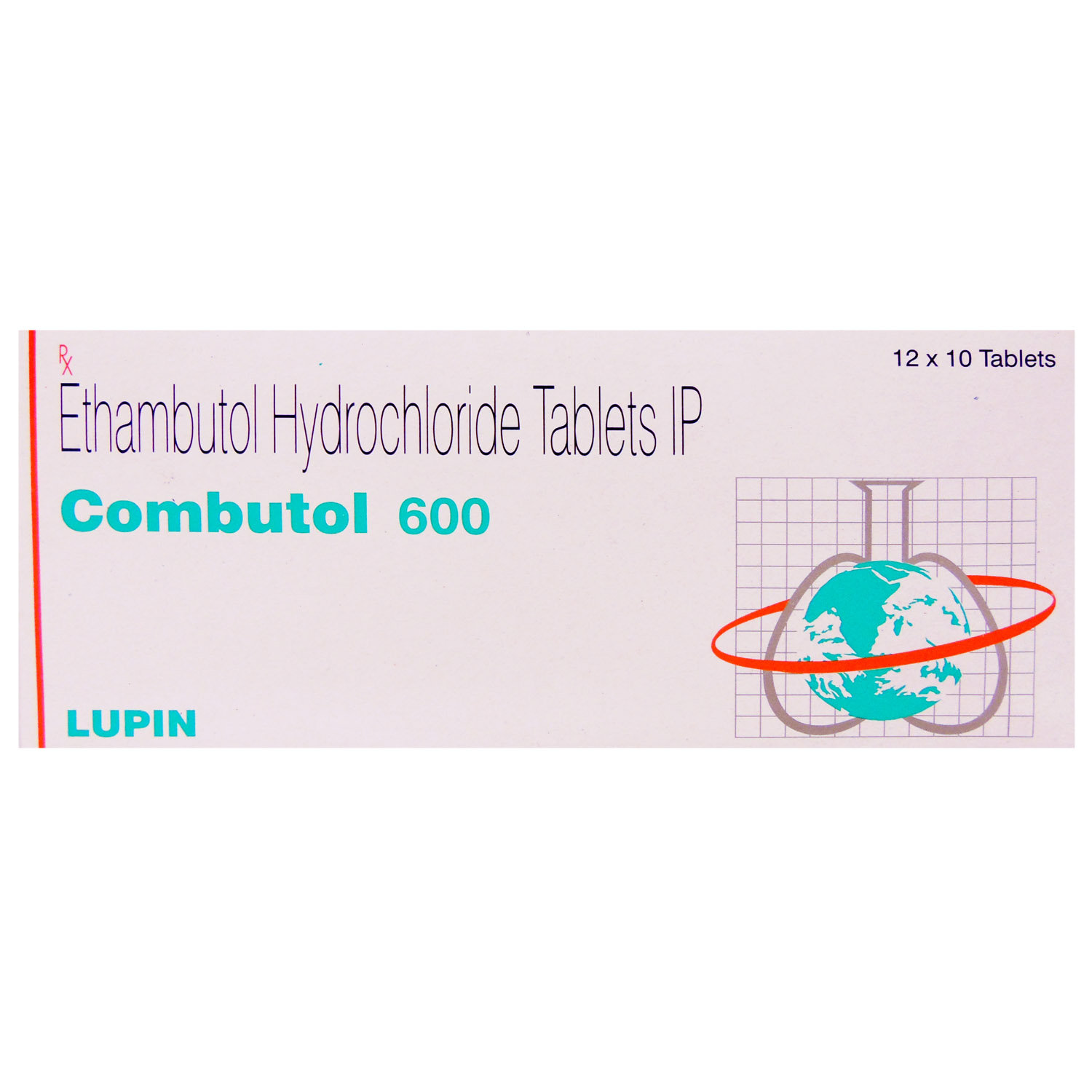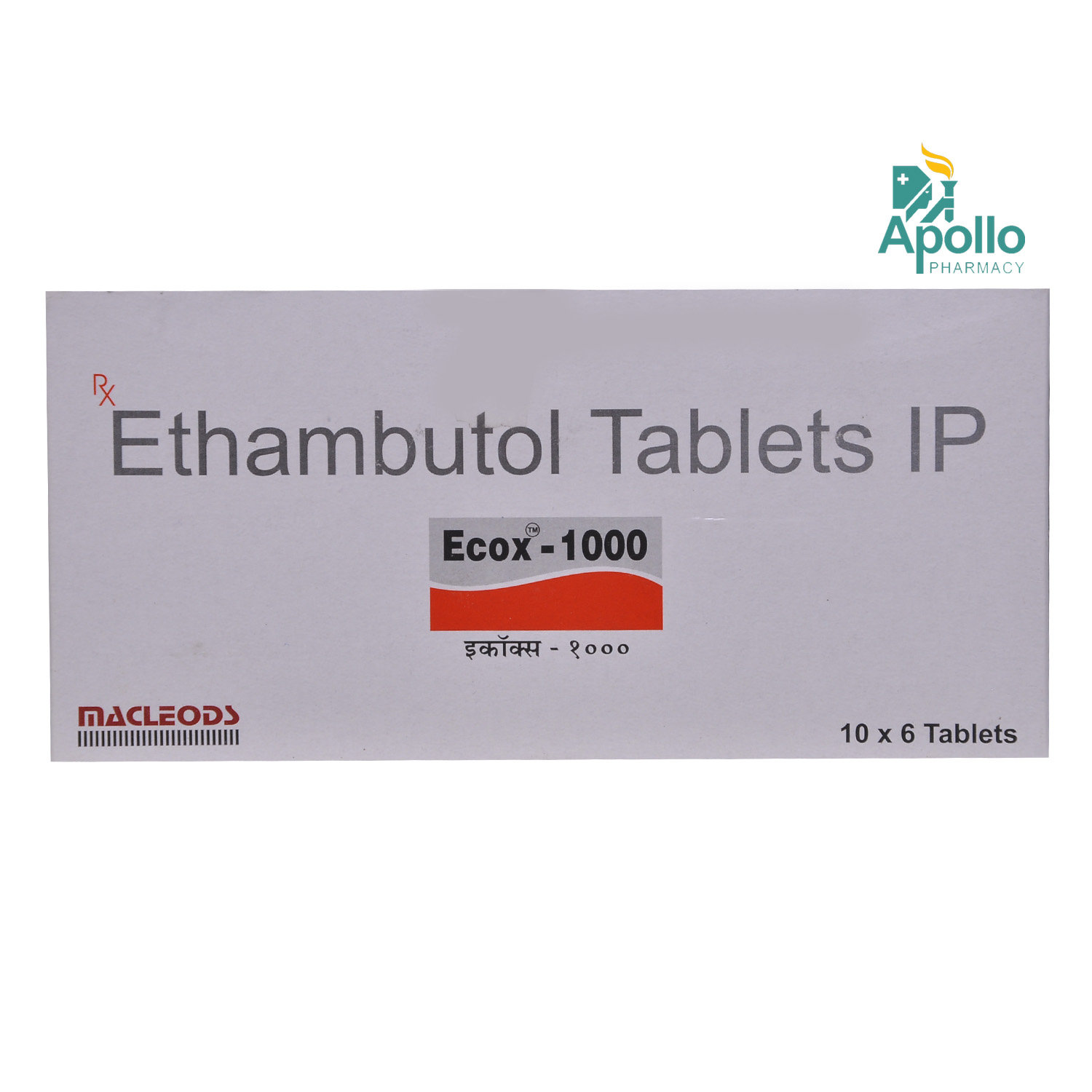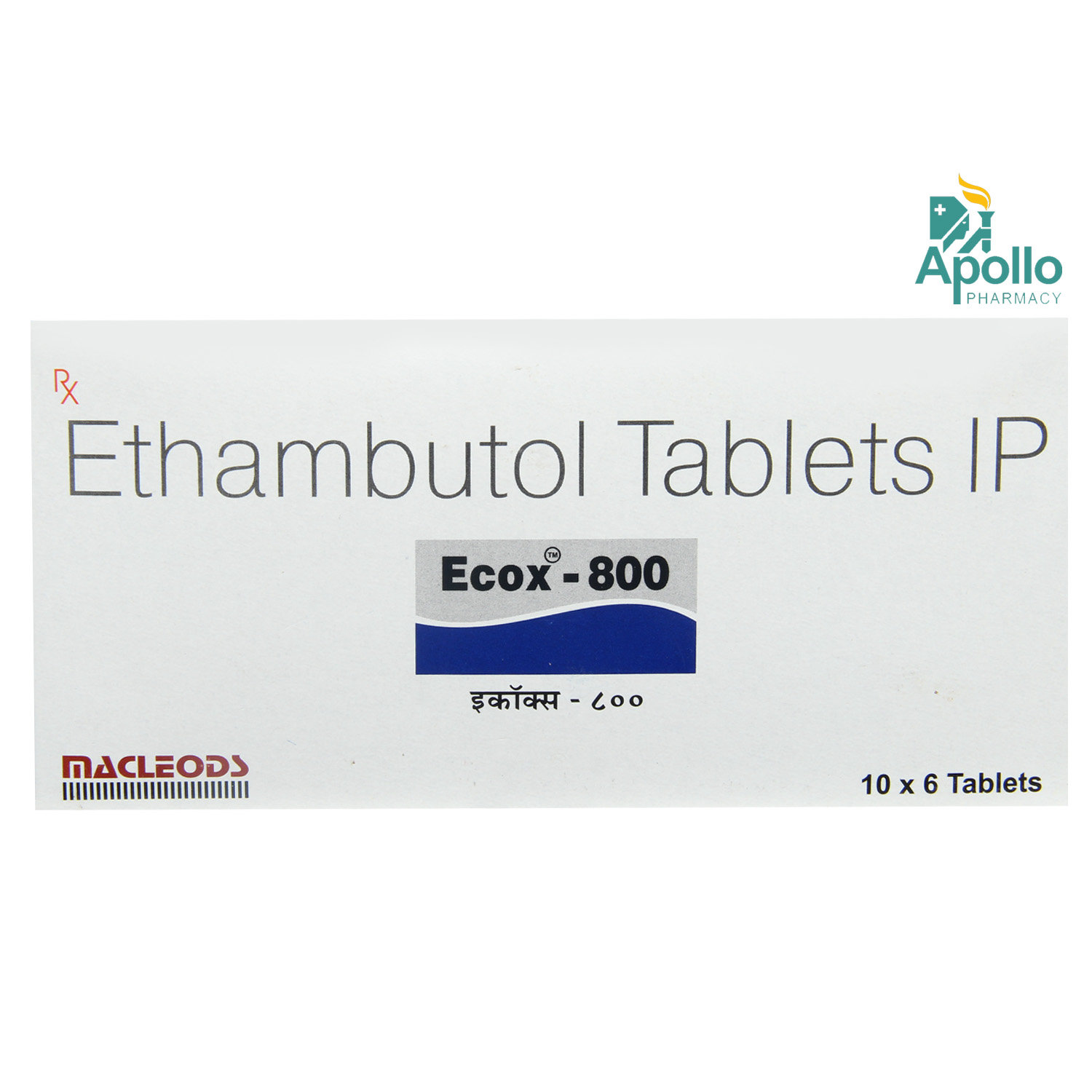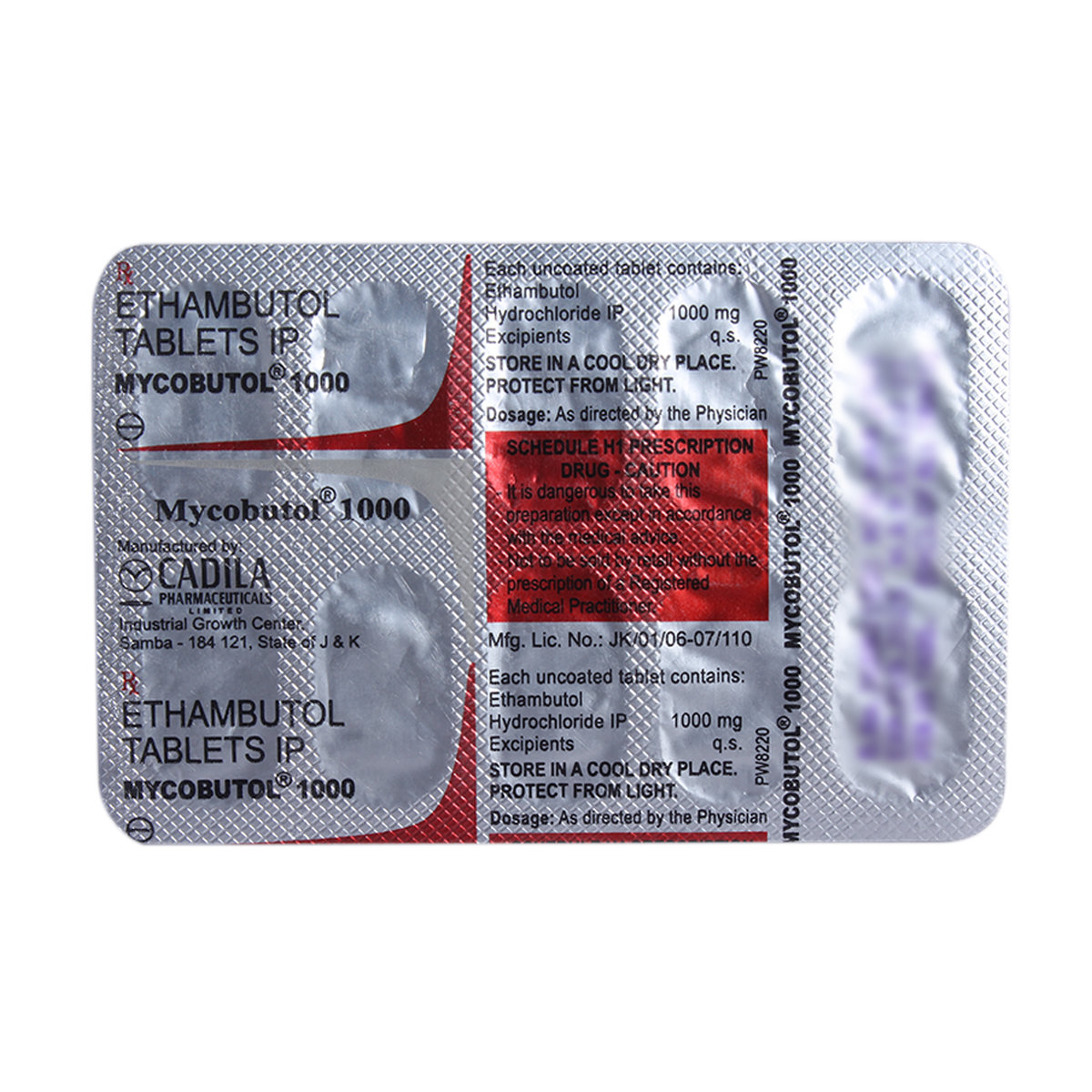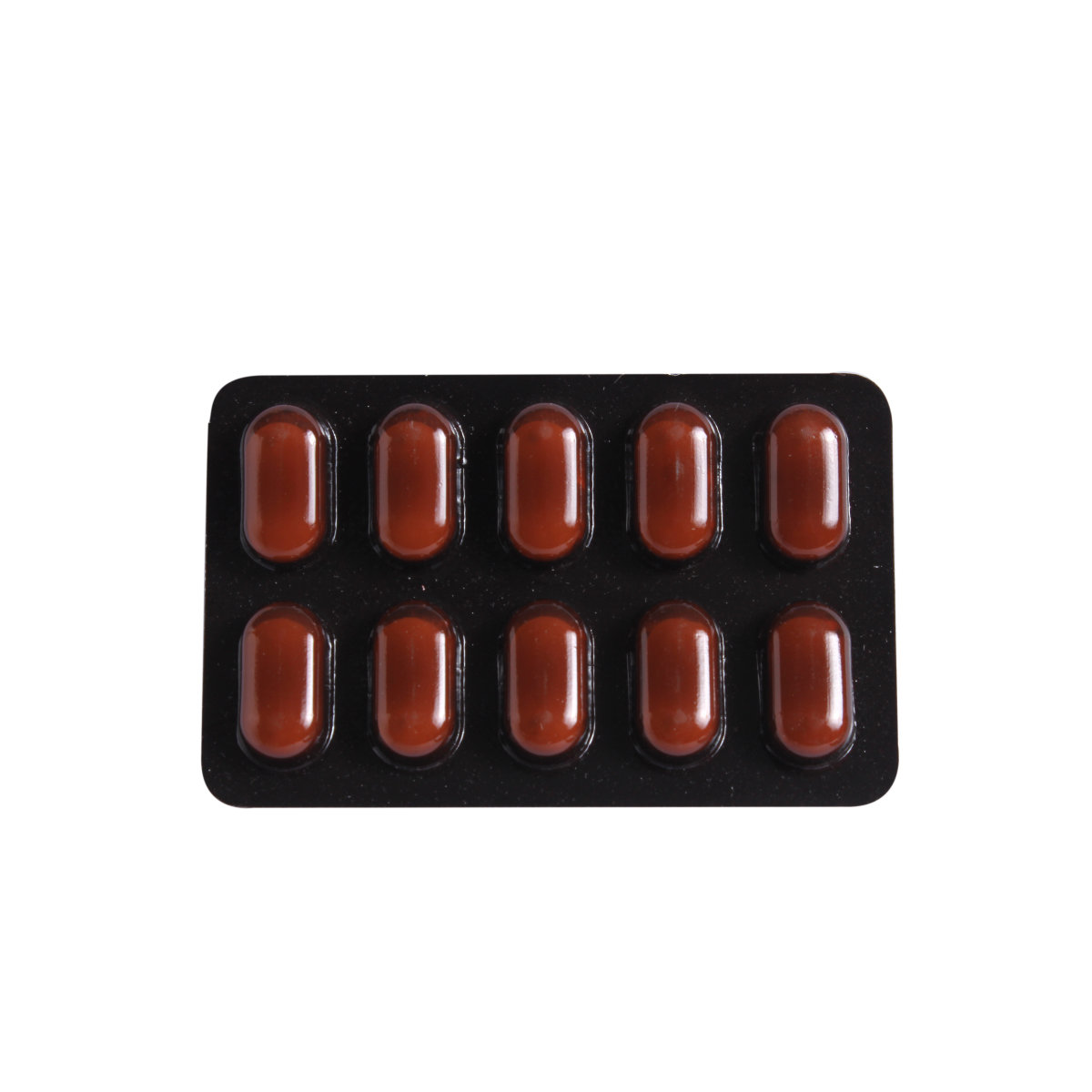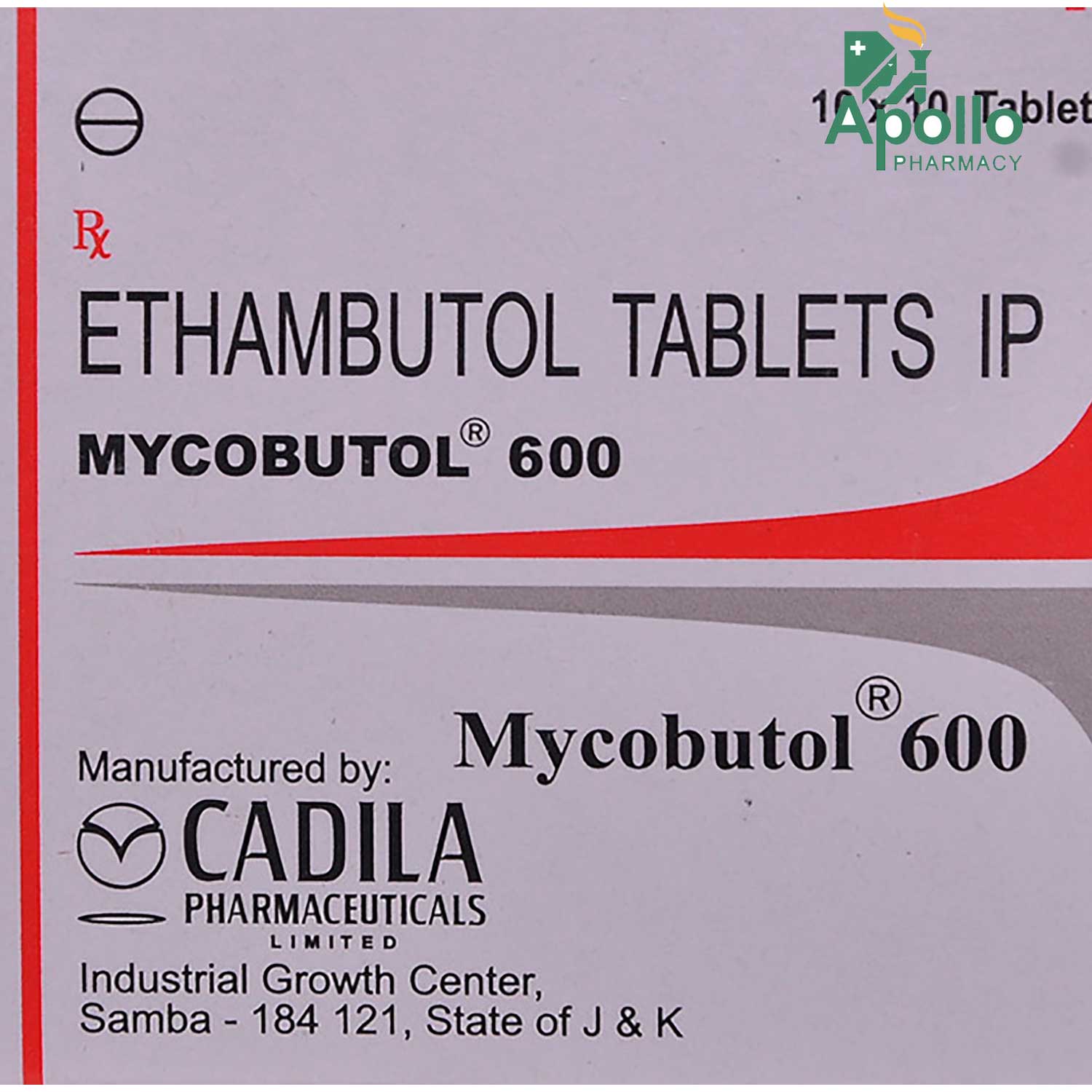Ethambutol
About Ethambutol
Ethambutol belongs to a class of medications known as anti-tuberculosis (antibiotics) drugs primarily used to treat and prevent tuberculosis (TB). Tuberculosis is a bacterial infection that mainly affects the lungs and can even spread to other parts of the body like the brain, and spine. Ethambutol treats only bacterial infections and does not work for viral infections (like the common cold, or flu).
Ethambutol contains 'Ethambutol' that works by destroying the Mycobacterium tuberculosis bacteria, causing lung infection known as Tuberculosis (TB).
Follow the dose and duration as advised by your doctor. Take this Ethambutol with or without food, preferably at the same time every day. Finish the full course of treatment, and do not skip any doses even if you start feeling good. Discontinuing its use on your own can result in treatment failure and in the development of drug-resistant tuberculosis, which can lead to serious health complications. If you miss a dose, take it at the earliest. However, do not take double doses or overdose to fulfil missed doses as it may increase the side effects. Some people may experience changes in vision and colour blindness as side effects of this medicine. Please speak with your doctor if these side effects do not resolve or worsen. It is advised to take antacids containing aluminium at least 4 hours before or after taking Ethambutol to avoid drug interaction.
Inform your doctor if you have pre-existing conditions like diabetes, as it can decrease the sugar levels in the blood. Diabetic patients should monitor blood sugar levels regularly. Proper functioning of eyes, liver and thyroid should be closely monitored while taking treatment with Ethambutol. So, before using Ethambutol, tell your doctor if you have eye problems (like diabetic retinopathy, optic neuritis, cataracts), liver disease, or kidney disease.
Uses of Ethambutol
Medicinal Benefits
Ethambutol is used to treat tuberculosis (TB), an infectious disease that mainly affects the lungs but can spread to other parts of the body like the brain, spine. It destroys the growth of infection-causing bacteria Mycobacterium tuberculosis and helps in reducing the infection. Your symptoms may improve before the infection is the completion of the entire course of treatment. So not stop using it without speaking and informing your doctor, as doing so may cause the infection to return or worsen. Adhere to your doctor’s instructions carefully to get maximum benefit.
Directions for Use
Storage
Side Effects of Ethambutol
- Nausea
- Vomiting
- Loss of appetite
- Headaches
- Dizziness
- Confusion
Drug Warnings
You should stop using the medicine and call your doctor immediately if you develop any vision problems like blurred vision, colour blindness or any kidney problems like decreased amount of urine and swelling of your legs and feet. You may even develop nausea, vomiting and yellowish colour of skin and eyes. Notice all these symptoms carefully and consult your doctor immediately. Ethambutol can alter your blood sugar levels, so if you have diabetes, monitor your blood sugar levels regularly. Your doctor may monitor your liver function, vision and thyroid function while on treatment with this medicine. Avoid consumption of alcohol while taking this medication, as it can lead to dizziness or drowsiness. Please do not stop taking Ethambutol on your own, as it can fail the treatment and your medicine will not show its proper effect.
Drug Interactions
Drug-Drug Interactions: Ethambutol may have interaction with antacid medicine (aluminium hydroxide) and anti TB drug (isoniazid).
Drug-Food Interactions: No food interaction found.
Drug-Disease Interactions: Use with caution in patients with eye problems (cataract, diabetic retinopathy), liver problems, and gout disease (increased uric acid).
Drug-Drug Interactions Checker List:
Safety Advice

Alcohol
unsafeIt is not known whether it is safe to consume alcohol or not. Please consult your doctor.

Pregnancy
safe if prescribedYour doctor will calculate the potential risks to benefit ratio before prescribing it to you. Please consult your doctor if you are pregnant or trying to get pregnant.

Breast Feeding
safe if prescribedEthambutol is safe to use during breastfeeding. Human studies suggest that a significant amount of drug does not pass into breast milk and is therefore not harmful to the baby.

Driving
unsafeEthambutol may cause side effects impairing your ability to drive. It occasionally causes sight problems and tingling or numbness in the hand or feet. After taking this medicine you should not drive to ensure safety.

Liver
cautionEthambutol is used with caution in patients with liver disease. Dose adjustment may be needed. Please consult your doctor.

Kidney
cautionEthambutol is used with caution in patients with kidney disease. Dose adjustment may be needed. Please consult your doctor.

Children
safe if prescribedEthambutol is recommended for treatment in children under 12 years of age who are infected with tuberculosis. The initial dose would be high for the first two months, and the next dose may be reduced if necessary depending on the child's response to the Ethambutol treatment.
Habit Forming
Diet & Lifestyle Advise
- Under nutrition weakens the body's ability to fight tuberculosis and may also worsen the disease. Therefore, patients with tuberculosis should aim for a healthy balanced diet. It is achieved by consuming basic foods like cereals, millets, pulses, vegetables and fruits, milk products, meat, eggs and fish.
- Vegetables, especially green leafy vegetables and fruits are rich in antioxidants and minerals, so they should be a part of a daily diet.
- TB is a contagious disease, so the patient should be extra careful while contacting other people during the infection.
- The Health and hygiene of patients with TB should be maintained.
Patients Concern
Disease/Condition Glossary
Tuberculosis (TB): Tuberculosis is an infectious disease that affects the lungs, but it could also spread to other body parts such as the kidneys, brain, spine, and bone marrow. Tuberculosis is caused by a bacteria named Mycobacterium tuberculosis. It is a contagious disease which can spread to others through small droplets released into the air by a person suffering from tuberculosis. Symptoms include a cough that lasts for a few weeks, pain while coughing or with normal breathing, unexplained fatigue, fever, night sweats, and loss of appetite and weight. People who smoke or consume alcohol, people diagnosed with HIV, and immune system problems are more likely at risk of developing active TB.
FAQs
No, it would help if you did not take a double dose or extra dose to make up the missed one. Taking an extra dose can cause unpleasant side effects and lead to toxicity.
Yes, Ethambutol treatment can be for more than two months based on your medical condition. After two months, if the investigations show that the bacteria are still active, then its usage may be extended for one more month.
Yes, your body may stop reacting to the antibiotic, and you may become resistant to other anti-tuberculosis (TB) drugs. In this case, you should take this Ethambutol with other TB drugs for which you are not drug-resistant.
Yes, this Ethambutol is used as both the first and second line of treatment for tuberculosis. So, if you get tuberculosis for the second time it works by killing the harmful bacteria; however, the dose adjustments are made by your doctor accordingly.
No, you should tell the doctor before taking Ethambutol if you have eye problems (like diabetic retinopathy, optic neuritis, cataracts). Using Ethambutol in the eye conditions might get worsen and can lead to even vision loss.
Ethambutol contains 'Ethambutol' that works by destroying the Mycobacterium tuberculosis bacteria, causing lung infection known as Tuberculosis (TB).

